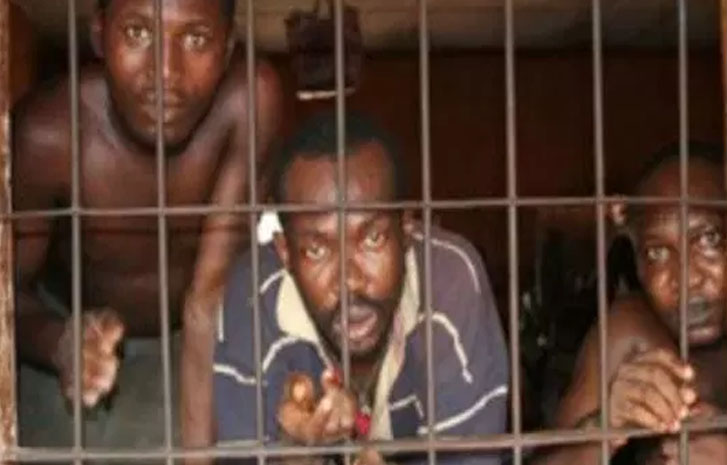LOCAL

“OVERCROWDED AND FORGOTTEN: LIFE INSIDE OGUN’S FAILING PRISONS”
Inside Ogun Prisons: Overcrowding, Suffering, and Forgotten Lives
Life behind bars in Nigeria’s correctional centres is far worse than most can imagine—especially in Ogun State, where inmates live in dire, dehumanising conditions. The Ibara Correctional Centre in Abeokuta, originally built to house 700 inmates, now crams nearly 1,500 people into its decaying walls. “It was like sleeping in a sardine can,” said Idris (not real name), a former inmate who endured nearly two years in the facility while awaiting trial.
What started as a simple greeting to an old friend landed Idris in the middle of a cult-related violence, leading to gunshot wounds, a hospital stay, and eventually, serious criminal charges. His story highlights not only the chaos in parts of society but also the dysfunction of Nigeria’s justice and prison systems.
Hellish Living Conditions
Idris described the prison as “hell on earth,” with inmates packed like livestock, struggling with skin infections, lice, bedbugs, and even mental health breakdowns. Their cell was next to the kitchen, making it unbearably hot at all hours.
Meals were meagre and lacking in nutrition—mostly beans, garri, and poorly cooked rice, served on a strict schedule that rarely changed. “The soup is so bad, we joke that it causes health problems. We call it ‘Sapa ti mu mi lepon,’ meaning hunger has affected my manhood,” he added grimly.
A System That Punishes the Poor
Idris’s account is one of thousands. According to 2025 statistics, Nigeria’s correctional facilities hold over 81,000 inmates—yet nearly 65% of them (53,178) are still awaiting trial. In Ogun State alone, facilities are bursting: Ibara Correctional Centre holds more than double its intended capacity, while Oba Correctional Centre is also overpopulated.
Most heartbreaking are the cases of people detained for petty crimes—sometimes over as little as N1,000 or N5,000. Instead of community service or bail, they are left to rot in already overstretched cells, often becoming worse off than when they came in.
When Correctional Centres Become Crime Schools
Idris warned that overcrowded prisons are not just uncomfortable—they are dangerous. “Some people go in for minor offences and come out as hardened criminals,” he said. “Inmates with capital offences adopt and ‘train’ the less experienced ones. The system is breeding criminals instead of reforming them.”
Calls for Urgent Reform
Inmate Ayomide Olagoke, a master’s degree holder and now theology graduate, appealed to the government for mercy. “We are changed men now. We plead with the government to give us a second chance. Many are suffering and dying in here every day.”
Even the Chief Judge of Ogun State, Justice Mosunmola Dipeolu, acknowledged the heartbreaking reality during a recent inspection. “Inmates are forced to sit or stand all day—there’s no space to lie down,” she lamented, revealing that some people have been awaiting trial for over 12 years.
Legal Experts Weigh In
Legal experts say that overcrowding in prisons is partly due to Nigeria’s sluggish justice system. Health law scholar and lecturer, Ogaga Ediru, explained that while the Nigerian Correctional Service Act 2019 provides a framework for decongestion, most of it is only followed on paper. “Overcrowding affects everything—healthcare, hygiene, even the mental state of inmates,” he said.
He called for urgent reforms: more judges, better-trained investigators, and modern laws that promote non-custodial sentencing for petty crimes.
"This represents a significant development in our ongoing coverage of current events."— Editorial Board









